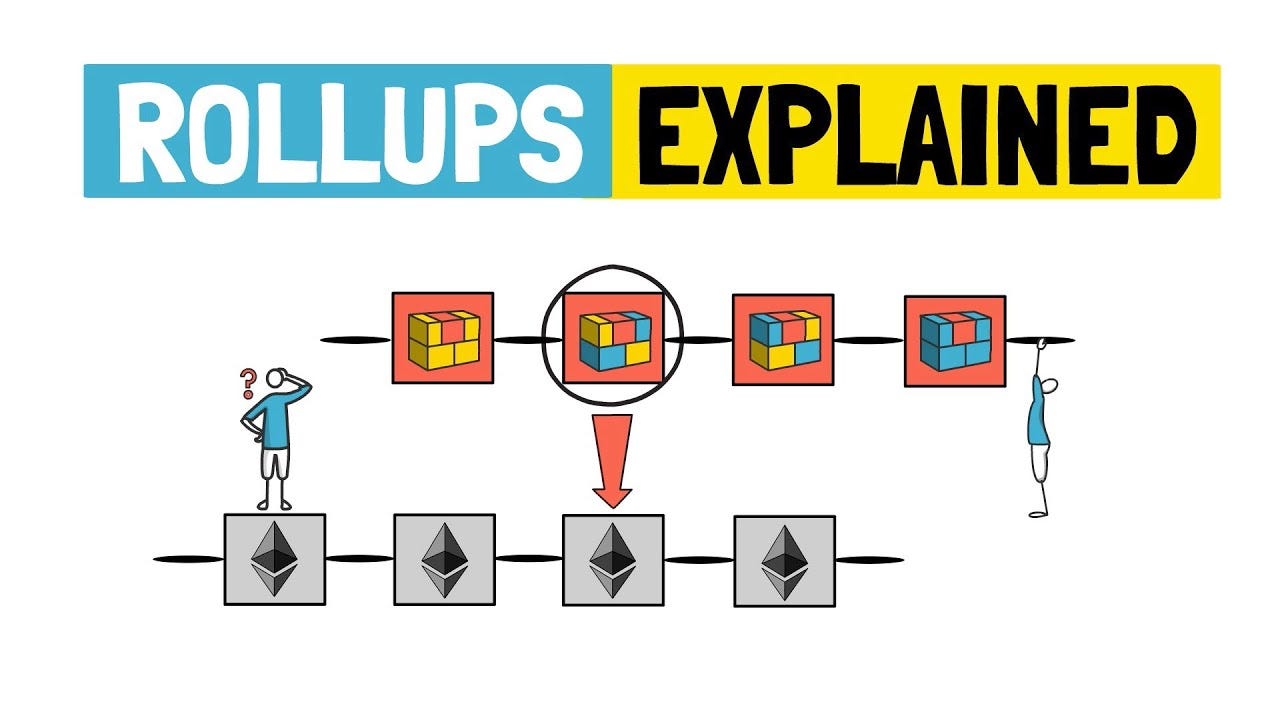Ethereum’s Unique Solution To Scalability: Understanding Rollups
Ethereum’s Unique Solution to Scalability: Understanding Rollups

- The Unsung Heroes Of Global Finance: How Remittances Can Thrive With Crypto Adoption
- What Are Flash Loans In Defi And How Can They Be Used
- The Future Of Decentralized Identity In Blockchain
- What Are Flash Loans In Defi And How Do They Work
- Unlocking The Potential Of Crypto In The Sharing Economy
Imagine a world where blockchain technology has reached its full potential, and transactions are being processed at lightning-fast speeds. Sounds like a utopia, right? Well, Ethereum is on a mission to make this a reality, and they’re getting closer by the day. The magic happens through a technology called rollups, which promises to revolutionize the way we think about scalability.
Rollups are not just a fancy new term; they’re a game-changer. They allow Ethereum to process a massive number of transactions off-chain, while still maintaining the security and decentralization that makes blockchain so powerful. This solution is not only groundbreaking but also essential for mainstream adoption. In this article, we’ll dive into the world of rollups and explore their benefits, types, and how they’re changing the face of Ethereum.
The Problem with Scalability
Before we dive into rollups, let’s quickly discuss the problem they’re trying to solve. Blockchain technology, by its nature, is slow and expensive. The reason is that every node on the network needs to verify each transaction, which takes time and resources. Ethereum, in particular, has been struggling with scalability issues, which has hindered its growth and adoption. The high gas fees and slow transaction times have made it less appealing to users and developers.
Enter Rollups
Rollups are a solution to this problem. The idea is simple: process transactions off-chain, in batches, and then settle them on the Ethereum network in one transaction. This approach has several benefits. Firstly, it reduces the load on the Ethereum network, making it more efficient. Secondly, it decreases the gas fees associated with each transaction. And lastly, it allows for faster transaction times, making the overall experience more enjoyable.
There are two types of rollups: Optimistic Rollups (ORUs) and Zero-Knowledge Rollups (ZKRs).
- Optimistic Rollups (ORUs): ORUs assume that all transactions within a batch are valid and rely on a committee of nodes to verify them. If someone disputes a transaction, a challenge process is initiated, and the nodes work together to resolve the issue. ORUs are less complex and cheaper to implement but rely on a certain level of trust within the committee.
- Zero-Knowledge Rollups (ZKRs): ZKRs take a different approach. They use zero-knowledge proofs, which allow nodes to verify transactions without knowing their contents. This method eliminates the need for a committee and ensures complete security and decentralization.
In both cases, rollups offer a significant improvement over traditional blockchain technology. They enable faster transaction times, lower gas fees, and greater scalability, making them an attractive solution for a wide range of use cases.
Real-World Applications
Rollups are not just theoretical concepts; they’re being implemented in real-world applications. In the world of decentralized finance (DeFi), rollups are being used to process complex transactions, like lending and borrowing. In the gaming space, rollups are enabling fast and affordable transactions, making it possible for users to enjoy immersive gaming experiences. And in the non-fungible token (NFT) space, rollups are allowing for the creation and trading of unique digital assets.
Ethereum’s rollups solution is a game-changer. It offers a way to scale the network without sacrificing security or decentralization. By processing transactions off-chain, in batches, rollups can handle a massive number of transactions while reducing costs and increasing speeds. The two types of rollups, ORUs and ZKRs, offer different benefits and use cases, and they’re already being implemented in real-world applications. As the world of blockchain continues to evolve, rollups will undoubtedly play a significant role in shaping its future.
